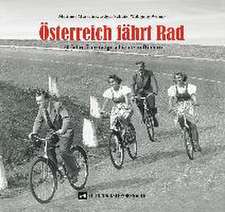New Perspectives on Yugoslavia: Key Issues and Controversies
Editat de Dejan Djokić, James Ker-Lindsayen Limba Engleză Paperback – 20 aug 2010
Drawing on the very latest historical research, this book explains how the country came about, how it evolved and why, eventually, it failed. From the start of the twentieth century, through the First World War, the interwar years and the Second World War, to the road to socialism under President Tito and the wars of Yugoslav succession in the 1990s, this volume provides up to date analysis of the causes and consequences of a range of events that shaped the development of this remarkable state across its various iterations. The book concludes by examining post-conflict relations in the era of European integration.
Traversing ninety years of history, this volume presents a fascinating story of how a country that once served as the model for multiethnic states around the world has now become a byword for ethno-national fragmentation and conflict.
Contributors include Dejan Djokić, James Ker-Lindsay, Connie Robinson, Mark Cornwall, John Paul Newman, Tomislav Dulić, Stevan K. Pavlowitch, Dejan Jović, Nebojša Vladisavljević, Florian Bieber, Jasna Dragović-Soso and Eric Gordy.
| Toate formatele și edițiile | Preț | Express |
|---|---|---|
| Paperback (1) | 366.46 lei 6-8 săpt. | |
| Taylor & Francis – 20 aug 2010 | 366.46 lei 6-8 săpt. | |
| Hardback (1) | 1005.39 lei 6-8 săpt. | |
| Taylor & Francis – 20 aug 2010 | 1005.39 lei 6-8 săpt. |
Preț: 366.46 lei
Nou
Puncte Express: 550
Preț estimativ în valută:
70.12€ • 73.21$ • 58.03£
70.12€ • 73.21$ • 58.03£
Carte tipărită la comandă
Livrare economică 04-18 aprilie
Preluare comenzi: 021 569.72.76
Specificații
ISBN-13: 9780415499200
ISBN-10: 0415499208
Pagini: 240
Ilustrații: 20 black & white illustrations
Dimensiuni: 156 x 234 x 15 mm
Greutate: 0.38 kg
Ediția:1
Editura: Taylor & Francis
Colecția Routledge
Locul publicării:Oxford, United Kingdom
ISBN-10: 0415499208
Pagini: 240
Ilustrații: 20 black & white illustrations
Dimensiuni: 156 x 234 x 15 mm
Greutate: 0.38 kg
Ediția:1
Editura: Taylor & Francis
Colecția Routledge
Locul publicării:Oxford, United Kingdom
Public țintă
Postgraduate and UndergraduateCuprins
Introduction Dejan Djokić and James Ker-Lindsay 1. Yugoslavism in the Early Twentieth Century: The Politics of the Yugoslav Committee Connie Robinson 2. The Great War and the Yugoslav Grassroots: Popular Mobilisation in the Habsburg Monarchy, 1914-18 Mark Cornwall 3. Forging a United Kingdom of Serbs, Croats, and Slovenes: The Legacy of the First World War and the ‘Invalid Question’ John Paul Newman 4. National Mobilisation in the 1930s: The Emergence of the ‘Serb Question’ in the Kingdom of Yugoslavia Dejan Djokić 5. Ethnic Violence in Occupied Yugoslavia: Mass Killing from Above and Below Tomislav Dulić 6. Yugoslavia in Exile: The London-based Wartime Government, 1941-45 Stevan K. Pavlowitch 7. Reassessing Socialist Yugoslavia, 1945-90: The Case of Croatia Dejan Jović 8. The Break-Up of Yugoslavia: The Role of Popular Politics Nebojša Vladisavljević 9. Popular Mobilisation in the 1990s: Nationalism, Democracy and the Slow Decline of the Milošević Regime Florian Bieber 10. The ‘Final’ Yugoslav Issue: The Evolution of International Thinking on Kosovo, 1998-2005 James Ker-Lindsay 11. Coming to Terms with the Past: Transitional Justice and Reconciliation in the Post-Yugoslav Lands Jasna Dragović-Soso and Eric Gordy
Recenzii
"...this is a crucial book which painstakingly restores half-forgotten acotrs to the historical stage. It is indispensable reading for scholars and students alike, as it redresses the balance of agency between elite and non-elite actors, while at the same time highlighting the multifaceted nature of the political issues with which Yugoslavia was faced in both of its incarnations." - Richard Mills, University of East Anglia in European History Quarterly
Descriere
Nearly twenty years after it ceased to exist as a multinational federation, Yugoslavia still has the power to provoke controversy and debate. Bringing together contributions from twelve of the leading scholars of modern and contemporary South East Europe, this volume explores the history of Yugoslavia from creation to dissolution.






















